

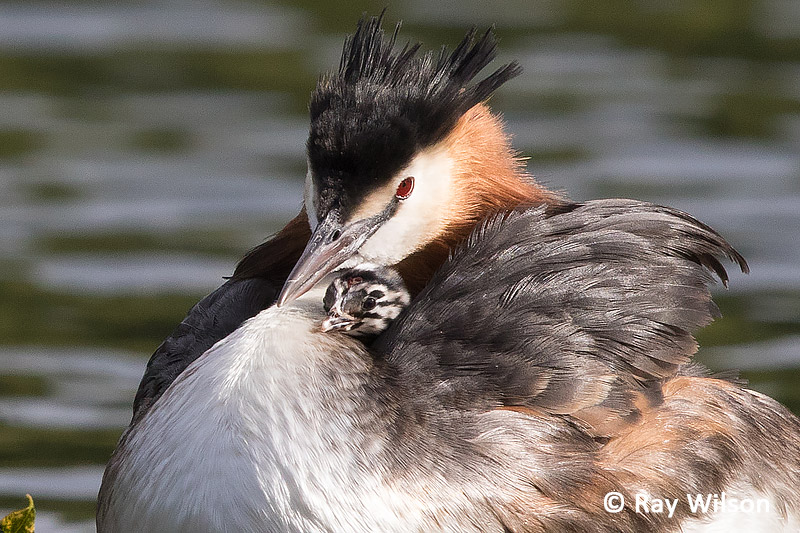
Great Crested Grebe is a common breeding species throughout most of Britain, although it was almost driven to extinction in the late 19th century due to their feathers being in high demand in the fashion trade.
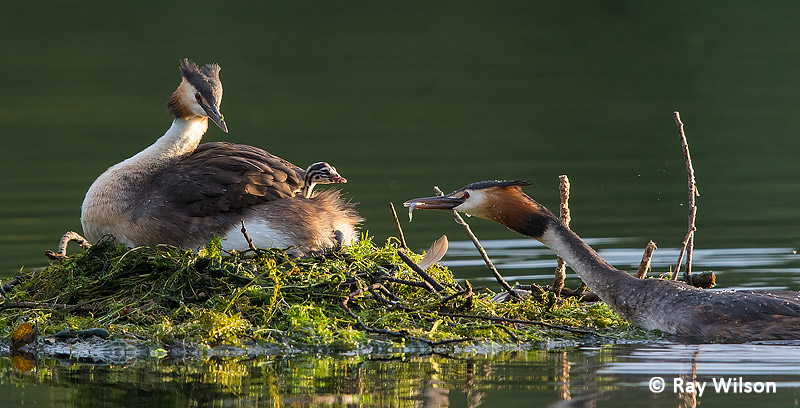
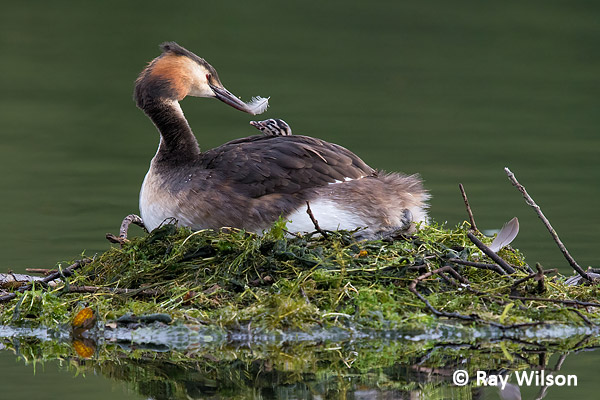
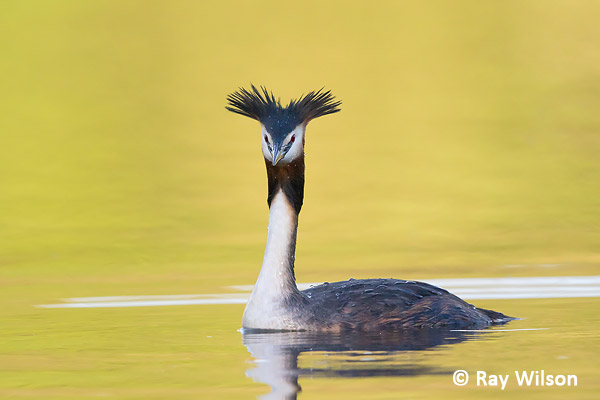
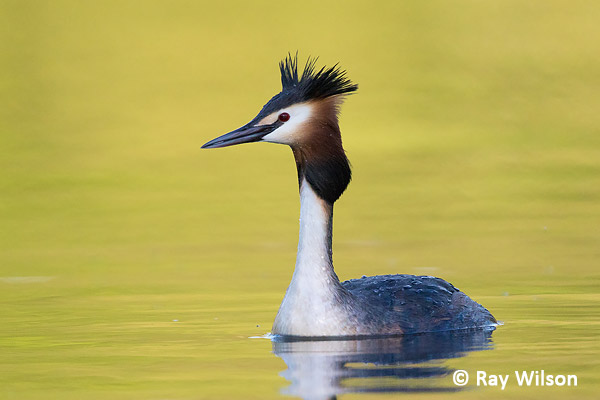
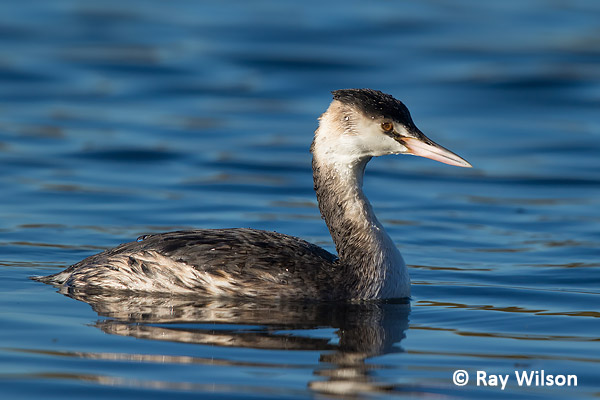
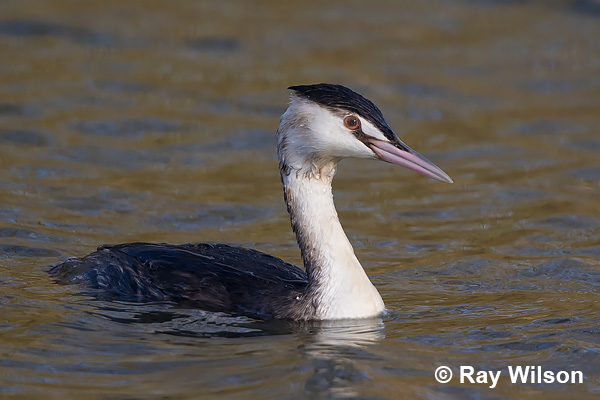
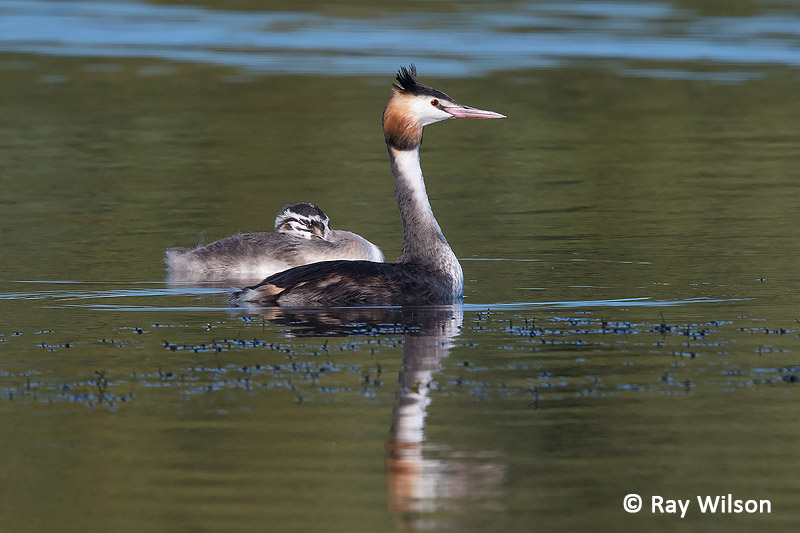
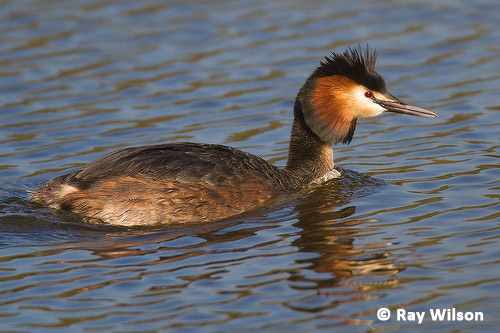
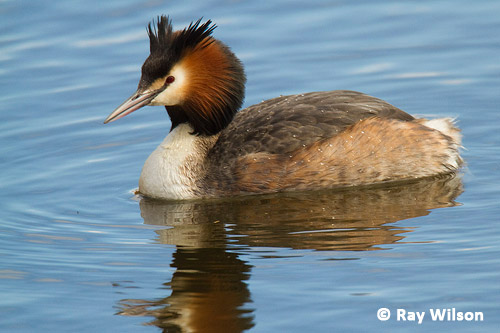
They breed mostly on large, shallow bodies of water fringed with abundant emergent vegetation and a stable water level to prevent their floating nests being overwhelmed by rising water.
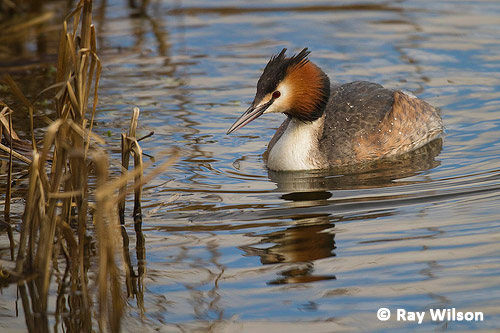
Their diet is almost entirely piscivorous, although they do supplement their fish diet with aquatic invertebrates (such as dragonfly nymphs and diving beetles) and crustaceans (eg. crayfish and shrimps). Almost all prey items are caught underwater during dives.
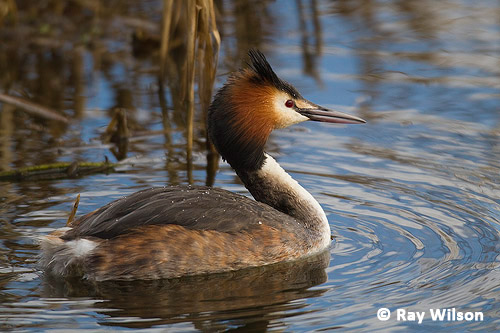
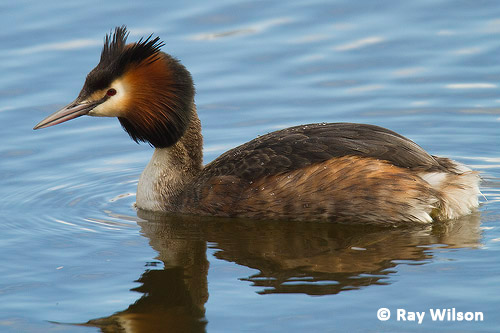
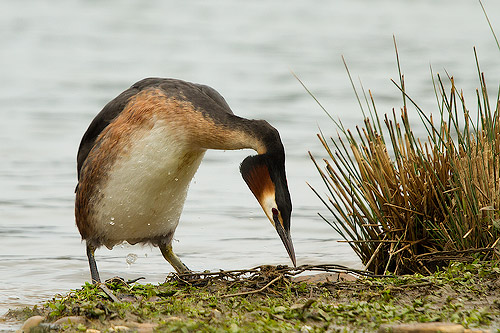
In non-breeding plumage it is distinguished from other European grebes by its large size, long slender neck and long dagger-like, pale pinkish bill. Its head is also more extensively white than other grebes within its range. No other European grebe shows any white above the eye.
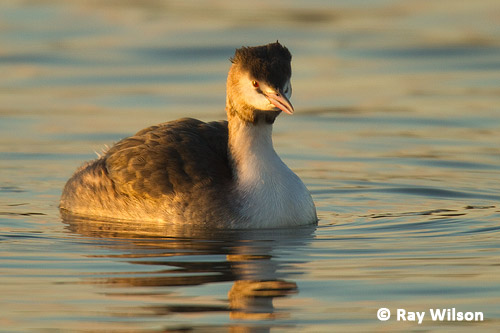
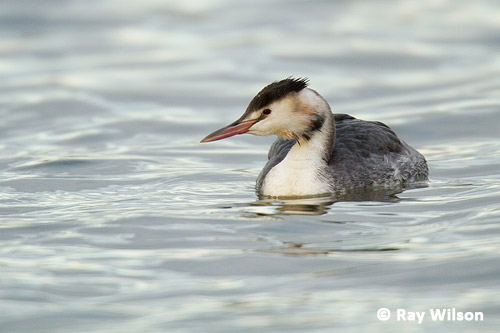
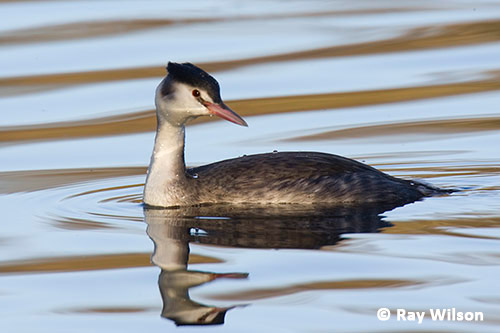
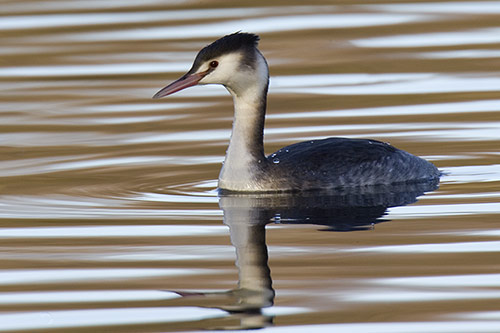
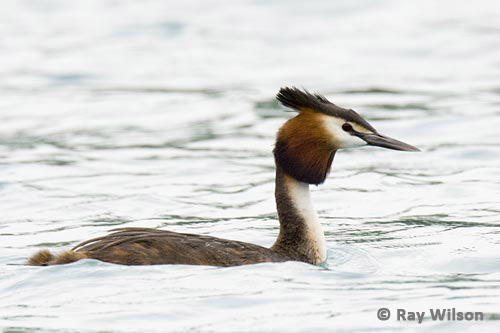
On their wintering grounds and during migration they often gather in large flocks. The australis subspecies found in Australia and New Zealand retains the breeding plumage throughout the year and does not attain the dull non-breeding plumage found in the Northern Hemisphere subspecies.
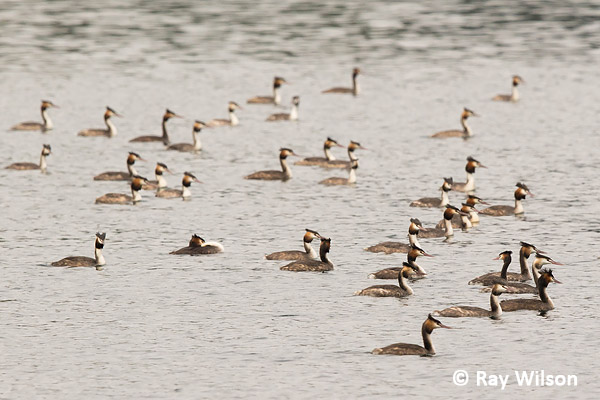
Ray Wilson owns the copyright of all images on this site.
They may not be used or copied in any form without prior written permission.
raywilsonphotography@googlemail.com